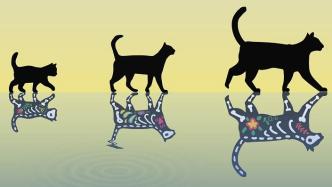

Science editor-in-chief Holden Thorpe wrote in a related editorial: "While GLP-1 receptor agonists are promising, they raise more questions than they answer, and this is really A sign of breakthrough.”
On December 14, "Science" magazine announced the top ten scientific breakthroughs of 2023, including the development of glucagon-like peptide-1 (GLP-1) receptor agonists and the drugs discovered this year that can alleviate obesity-related health problems. Ranked as the first breakthrough of the year.
Weight loss and overweight have always been challenging topics in science and public health. Obesity has many causes and can be life-threatening. However, in the process of weight loss drug treatment, the stigma of being overweight is always a problem that cannot be ignored, which leads people to always associate being overweight with a person's weak will rather than with biochemical factors.
Now, a new drug treatment for weight loss has emerged and is showing even more promising results. This year, two landmark clinical trials further showed that GLP-1 receptor agonists, originally developed to treat diabetes, produce more meaningful health benefits than the weight loss benefits later discovered. Researchers are currently conducting several trials investigating their effectiveness in treating drug addiction, Alzheimer's disease and Parkinson's disease.
Science editor-in-chief Holden Thorpe wrote in a related editorial: "While GLP-1 receptor agonists are promising, they raise more questions than they answer, and this is really A sign of breakthrough.”
Related review articles believe that the development of GLP-1 drugs will promote discussions on obesity, which will help reduce the stigma of being overweight. However, the review article also noted concerns about the cost, availability, associated side effects and the potential need to take these drugs indefinitely. Doctors are also concerned that people who are not obese or overweight will seek GLP-1 drugs to lose weight quickly.
The annual list of scientific breakthroughs also includes: an antibody therapy that may slow neurodegeneration in the brains of Alzheimer's patients; the discovery of a natural source of hydrogen below the Earth's surface; and a push for systemic changes in the treatment of early-career scientists by global institutions; Confirming the antiquity of human footprints found in an ancient lake in New Mexico, USA; Earth's vital carbon pump is slowing down; Interstellar signals from massive black hole mergers; Developments in AI-assisted weather forecasting; New malaria vaccine; E Supercomputer deployment.


